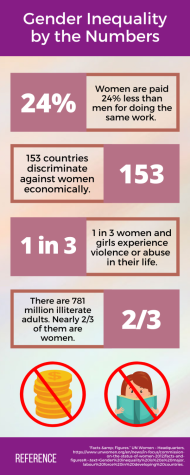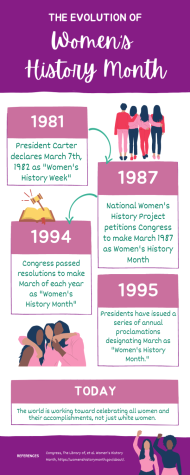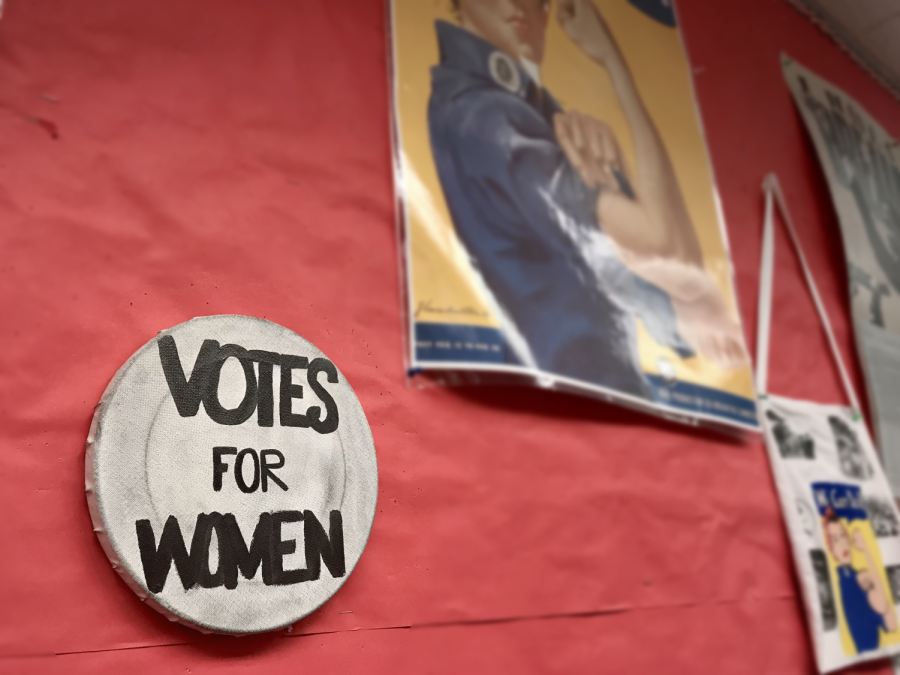Women’s History Month: What change has it brought, and what change needs to be made?
Women’s History Month first started as a local celebration in Santa Rosa, but it has now become an official month dedicated to recognition and acknowledgement.
March 31, 2022
March became officially known as Women’s History Month starting in 1981. An increasing number of people openly advocate for equal rights, and today, recognizing the impacts women have made is a natural aspect of daily life.
“Women’s History Month is an important way for [people] to give additional focus to history that they may or may not have been taught in school. For women’s history, it’s important to acknowledge that it’s not always a story that has been told and to celebrate the history that someone has potentially not yet heard of,” said Honors World History teacher Jill Batteliga.


By recognizing women’s achievements, many discover inspirational role models. Women from the past also receive the acknowledgment they deserve, especially when the patriarchy has downplayed their achievements.
“One of my biggest role models is Rosalind Franklin, who was a scientist underestimated in her field because she was a woman. She inspires me as a woman in STEM,” said Meenakshi Yarlagadda (‘23).
On the other hand, some feel that Women’s History Month infringes on men’s rights and is hypocritical.
“The people that write standards, or have the power to write history, are the ones with power. That power has been dominated by men. To be feminist does not mean to be anti-man, it means to be pro-human in terms of human rights. [During] women’s history [month], it’s important to acknowledge that it’s not always a story that people know of and to celebrate the history that someone has potentially not yet heard of,” said Battilega.
From 1981 to today, Women’s History Month makes a strong impact in recognizing women’s accomplishments. However, despite these milestones, the world still has a long way to go toward achieving gender equality.
“Originally, the month was celebrating the stories of women who are unsung heroes, or voices that are not part of our national narrative, but today we’re getting better at looking at what’s the true full story of women’s history. With any group that’s underrepresented, we’re increasingly trying to make it not just be about the month– to have it in our education, and in what the media covers. We’re just continuing to make it a natural part of what we learn and what we celebrate,” said Battilega.





